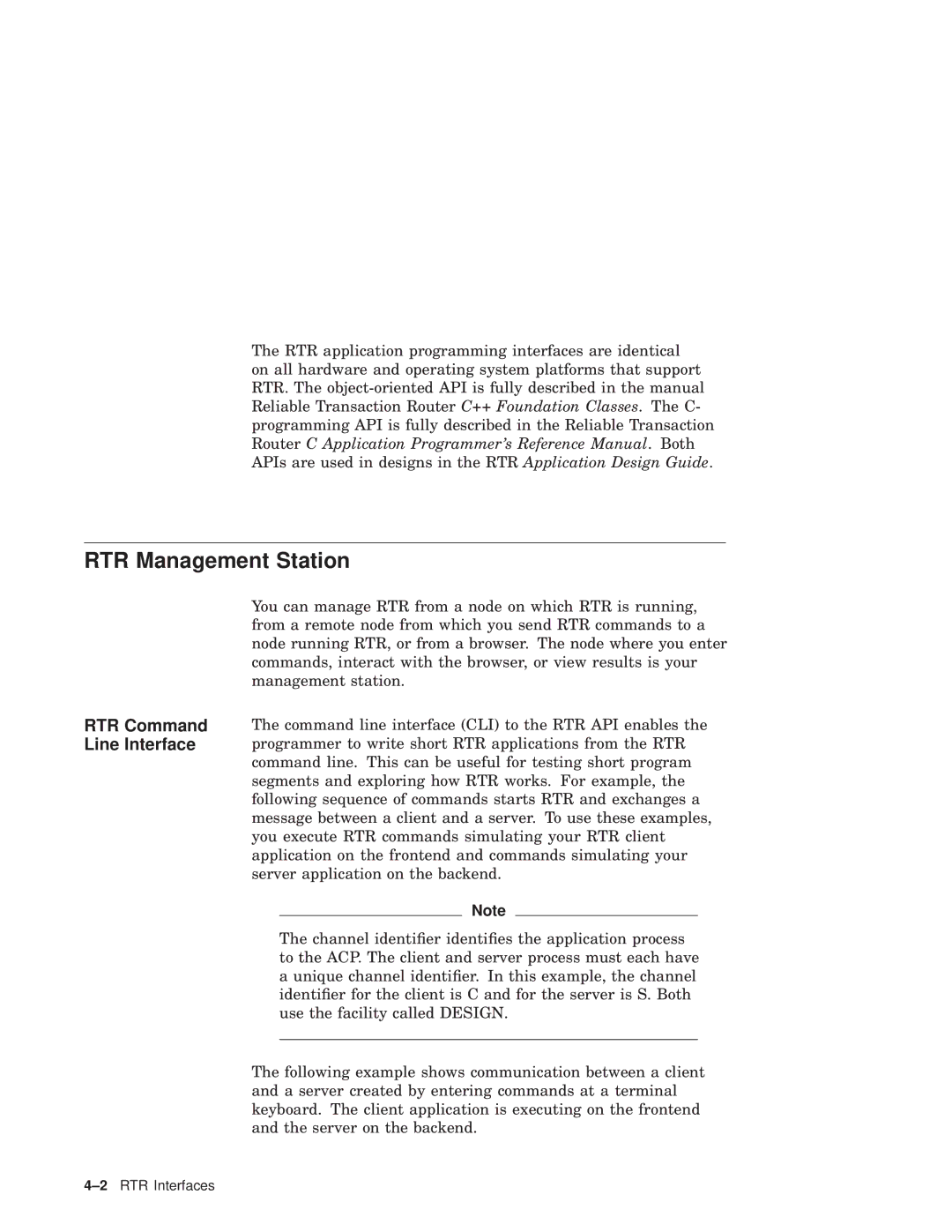
The RTR application programming interfaces are identical on all hardware and operating system platforms that support RTR. The
RTR Management Station
You can manage RTR from a node on which RTR is running, from a remote node from which you send RTR commands to a node running RTR, or from a browser. The node where you enter commands, interact with the browser, or view results is your management station.
RTR Command The command line interface (CLI) to the RTR API enables the
Line Interface programmer to write short RTR applications from the RTR command line. This can be useful for testing short program segments and exploring how RTR works. For example, the following sequence of commands starts RTR and exchanges a message between a client and a server. To use these examples, you execute RTR commands simulating your RTR client application on the frontend and commands simulating your server application on the backend.
Note
The channel identifier identifies the application process to the ACP. The client and server process must each have a unique channel identifier. In this example, the channel identifier for the client is C and for the server is S. Both use the facility called DESIGN.
The following example shows communication between a client and a server created by entering commands at a terminal keyboard. The client application is executing on the frontend and the server on the backend.
